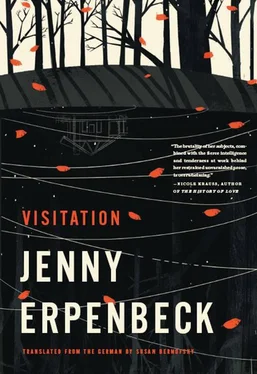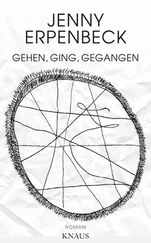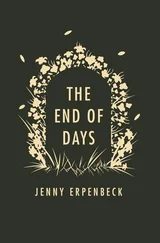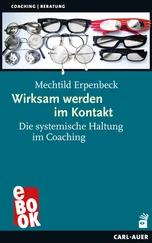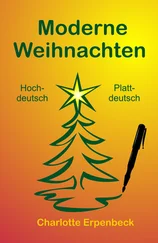The bridal procession must avoid, if at all possible, driving past a cemetery. The bride and groom must look straight ahead during the ride. If it rains, this is all right, but it must not snow during the ride. For every flake of snow / Another tale of woe. Further the bride must not drop her handkerchief at the altar or there will be many tears in the marriage. On the way home, the carriage of the bride and groom precedes all the others, it must travel quickly or else the marriage itself will not move forward as it should. When the bride and groom cross the threshold of the bride’s home, they must step over something made of iron, such as an axe or a horseshoe. During the wedding feast, the bride and groom sit in a corner, the bridal corner, which they must not leave. The chairs of the bride and groom are adorned with tendrils of ivy. After the meal, a boy sneaks under the table and pulls off one of the bride’s shoes, which is then auctioned off and in the end must be won at auction by the groom. The proceeds go to the women who cooked the meal. At twelve midnight, the bride’s veil is torn to pieces while songs are sung, and each guest receives a piece of the veil as a memento. After the wedding, the young couple moves into their new lodgings. Good friends have placed a little package containing bread, salt and a bit of money on the stove so that they will never be lacking sustenance and money. The package must remain lying there undisturbed for one year. The two words that are most important for a wedding are: may and must, and may, and must, and may, and must. The first task the young wife must perform in the new lodgings is fetching water.
The village mayor has four daughters: Grete, Hedwig, Emma and Klara. On Sundays, when he drives his daughters through the village in his carriage, he puts white stockings on the horses. The father of the mayor was mayor before him, and the father’s father was mayor, and the father of his father’s father and so on, all the way back to the year 1650. The king himself appointed as mayor the father of the father of the father of the mayor’s father, and this is why when the mayor drives through the village on Sundays in a carriage filled with daughters, he puts white stockings on the horses. Grete, Hedwig, Emma and Klara sit in the carriage that their father is driving himself, the horses going along at an easy trot, and when the earth is still damp, they don’t even get as far as the butcher shop before the horses’ white stockings are flecked with mud. Sunday after Sunday when services are finished the father drives his four daughters from Kirchweg, which runs beside the church, down to Hauptstrasse, which passes the butcher shop, the school and the brickyard, and after the brickyard he turns off the main road, taking a left on Uferweg, which runs along the shore, following it north all the way to the property halfway up the Schäferberg that everyone in the village refers to as Klara’s Wood because it is her inheritance. Here the girl’s father turns the carriage around, and while he is turning, the girls quickly jump down in summer to pick a few raspberries on the right-hand side of the road, but Wurrach, as the father of the four daughters is known in the village, cracks his whip as soon as he’s gotten the carriage turned around, just as he is in the habit of doing on workdays when he races through the village with his empty carriage, summoning his laborers and dairymaids to work, and as soon as the father, old Wurrach, has cracked his whip, the four sisters leap back to their seats in the carriage, and now they are on their way home again, past the brickyard, school and butcher shop to the other end of the village, down to the Klotthof farm that their father inherited from his father, and his father from his father before him, and his father from his father before him and so on and so forth, the Klotthof farm that the king gave Wurrach’s forebear as a fiefdom around 1650, along with several fields.
If a maiden wishes to know if she will marry soon, she must knock on the wall of the chicken coop during the night of New Year’s Eve. If the first creature to emerge is a hen, she’s out of luck, but if the rooster responds first, her wish will be granted. On New Year’s Eve she can force her future husband to appear to her. If the girl wishes to marry a boatman, she must sit down on a wheelbarrow, and the one she longs for will soon appear. To wed a mason, she must take a seat upon a chopping block. If she then takes up a mortar box and a mason’s trowel, he will soon arrive. If she wants a farmer, she must hold a scythe and a spade. The mother of a marriageable daughter is eager to lure suitors to her home. She can do so by intentionally allowing the cobwebs to remain hanging in the sitting room. If the cobwebs are destroyed, any suitor will be taken away.
The mother of the four girls died giving birth to Klara. The mayor has no son. There are smallholders and cottagers in the village, two cottiers and a few farmers, but only a single village mayor.
Grete does not marry, because the oldest son of the farmer Sandke with whom she was betrothed, the only one of the six Sandke sons who received agricultural training, because he was to inherit the Sandke farm, learned just before the wedding, both to his own astonishment and that of his father, that the landowner did not choose him to inherit the property. Because of this, the wedding is deferred, and after a brother-in-law of the landowner does in fact take over the farm the following September, Grete’s betrothed boards a steamer in Bremerhaven and for 280 marks journeys by way of Antwerp, Southampton, the Strait of Gibraltar, Genoa, Port Said, the Suez Canal, the Red Sea, Aden, Colombo and Adelaide to Melbourne, Australia, where after six weeks at sea he arrives on November 16, 1892, with 8 marks to his name and a gold pocket watch that he pawns for 20 marks. From Melbourne he reports these things in a letter to his fiancée, and thereafter Grete never hears from him again, and the fields belonging to Sandke’s farm that border the Wurrach property are now lost forever to the mayor’s family.
Hedwig gets involved with a workman who threshes the grain on the Klotthof farm in the summer. When her father is informed of this by a neighbor, he bursts into the barn in the middle of the day, wrests the flail from the worker’s hand and drives him from the farm with the words: I’ll take my axe, I’ll strike you dead! he chases after him as far as the edge of the woods, and everyone in the village hears his voice, which has become huge from years of giving orders, it’s gotten stretched out of shape and thus resembles the voice of a drunkard: I’ll take my axe, I’ll strike you dead! When he comes back to the farm, he locks Hedwig in the smokehouse up in the loft, where she loses her child, which at the time is not yet anything more than a little bloody clump.
Emma, the third oldest daughter of the mayor, would surely have made a good mayor herself if she’d been born a man. She assists her father at every turn, makes decisions in his absence about the villagers’ payments, hires farmhands and maids, oversees the felling of trees and the maintenance of fields and livestock. The question of Emma’s marrying someday has never been mentioned by anyone at all, neither in the family nor the village.
And now Klara, the mayor’s youngest daughter, stands to inherit the bit of woods on the hill called Schäferberg. The lower edge of the woods borders the lake, and its upper edge, the meadow with the raspberry vines that belongs to the estate; on the right it extends to the property line of Old Warnack’s land, and on the left borders the meadow of a smallholder who for years has been in conflict with Klara’s father over illegal pasturing, as Wurrach claims this meadow as his own. Given these circumstances, Klara’s Wood is seen by her father as an island that they cannot expect to combine with other properties through marriage.
Читать дальше
